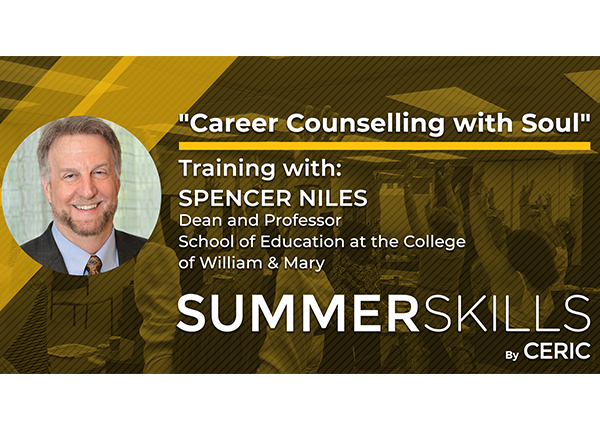
Just announced: Spencer Niles at Summer Skills Academy 2019 – Career Counselling with Soul
May 6, 2019Money talks: Financial considerations in careers
May 8, 2019By Mindy Chiang
“Meaning in work” literature has expanded rapidly in the past decade in vocational counselling and organizational psychology. This body of work highlights the relationship between meaning in work and a host of positive work and life outcomes for samples ranging from working adults to college students (see Duffy & Dik, 2013 for a summary). This literature is largely quantitative, measuring meaning in work, often conceptualized as work “calling,” using standardized measures where one common definition of calling is – a transcendent summons to a career path that is prosocial and tied to one’s personal sense of meaning (Dik & Duffy, 2009).
It is perhaps unsurprising that other conceptualizations of meaning in work exist. For instance, within calling research, there is the “neoclassical” perspective described above which retains the emphasis on an external caller and the prosocial aims of calling, and an alternative perspective (e.g., Dobrow & Tosti-Kharas, 2011) that has a more humanistic focus with emphasis on the individual’s sense of purpose and passion (Duffy, Dik, Douglass, England & Velez, 2018). Might it be conceivable that individuals’ sense of meaning in work is in fact more fluid than any of these conceptualizations?
Recently, Bendassolli and Tateo (2018) contested the notion in current literature that “meaning” in work is an entity that can be statically measured. They posited instead that “work is inherently a meaningful activity, mediating between personal and collective culture” (Bendassolli & Tateo, 2018, p. 137). This intriguing proposition calls for qualitative work that examines the process of individuals’ meaning-making in the work setting. Findings from such work may shed light on the nature of “meaning in work” and add further nuance to this burgeoning literature.
Author Bio
Mindy Chiang is a Master’s student in Counselling Psychology at the University of British Columbia. As someone whose career path has been shaped by her evolving sense of meaning, she is especially interested in studying meaning-construction in the career context. Her other research interests include cultural diversity in mental health and existential psychology.
References
Bendassolli, P. F., & Tateo, L. (2018). The meaning of work and cultural psychology: Ideas for new directions. Culture & Psychology, 24(2), 135-159.
Dik, B. J., & Duffy, R. D. (2009). Calling and vocation at work: Definitions and prospects for research and practice. The Counseling Psychologist, 37, 424–450.
Dobrow, S. R., & Tosti-Kharas, J. (2011). Calling: The development of a scale measure. Personnel Psychology, 64, 1001–1049.
Duffy, R. D., & Dik, B. J. (2013). Research on calling: What have we learned and where are we going? Journal of Vocational Behavior, 83(3), 428-436.
Duffy, R. D., Dik, B. J., Douglass, R. P., England, J. W., & Velez, B. L. (2018). Work as a calling: A theoretical model. Journal of Counseling Psychology, 65(4), 423.
